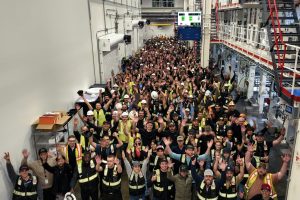The National Highway Transportation Safety Administration (NHTSA) has closed a review of 662,000 Tesla electric vehicles after finding no defects that caused sudden acceleration.
The NHTSA and the U.S. Department of Transportation released an Office of Defections Investigation (ODI) Resume on January 8, 2020, showing that a petition that “alleges that the subject vehicles contain a defect that can cause sudden unintended acceleration, which may result in crash and injury” had no basis.
The petition was originally opened on December 19, 2019, by Mr. Brian Sparks. Sparks requested that the NHTSA “recall all [Tesla] Model S, Model X, and Model 3 vehicles produced from 2013 to the present” due to sudden unintended acceleration (SUA),” NHTSA documents show.
After reviewing data from Tesla, the ODI and the NHTSA failed to find any evidence that would support a probe into Tesla that would support sudden acceleration claims.
The NHTSA wrote:
“After reviewing the available data, ODI has not identified evidence that would support opening a defect investigation into SUA in the subject vehicles. In every instance in which event data was available for review by ODI, the evidence shows that SUA crashes in the complaints cited by the petitioner have been caused by pedal misapplication. There is no evidence of any fault in the accelerator pedal assemblies, motor control systems, or brake systems that has contributed to any of the cited incidents. There is no evidence of a design factor contributing to increased likelihood of pedal misapplication. The theory provided of a potential electronic cause of SUA in the subject vehicles is based upon inaccurate assumptions about system design and log data.”
Claims against Tesla that alleged sudden acceleration have been debunked in the past as well. Owner Jason Hughes showed in January 2020 that some drivers are guilty of applying pressure to the wrong pedal. When they mean to brake, they accidentally hit the accelerator.
“I’ve almost made a pedal misapplication mistake several times in the past with multiple different vehicles… fortunately not in any catastrophic situation. We’re not infallible creatures. You get in a zone of habit, feel like you know what’s going on, and when something unexpected happens you’ll swear you were doing everything normally the way you’ve done it 10000 times before, when in reality you just screwed up. It happens,” Hughes said.
Tesla also released a statement on January 20, 2020, claiming the sudden acceleration issues were false. It seems that the automaker was right, as the NHTSA is scrapping any possibility of an investigation moving forward.
The ODI Resume from the U.S. Department of Transportation and the NHTSA is available below.
Original Publication by Joey Klender at Teslarati.
Ready to join Tesla’s Mission to accelerate the world’s transition to sustainable energy? Feel free to use my referral code to get some free Supercharging miles with your purchase: http://ts.la/guanyu3423
You can also get a $100 discount on Tesla Solar with that code.





